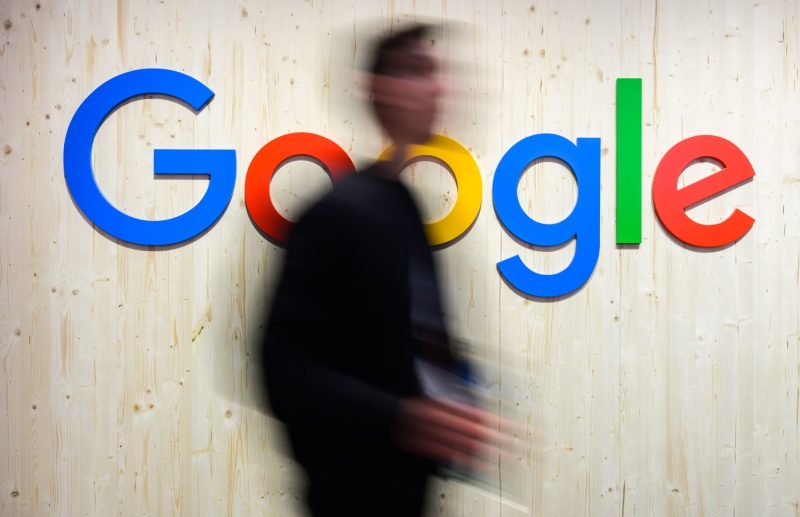A month after losing a landmark antitrust case brought by the Department of Justice, Google is headed back to court to face off for a second time against federal prosecutors.
In August, a judge ruled that Google has held a monopoly in internet search, marking the biggest antitrust ruling in the tech industry since the case against Microsoft more than 20 years ago. This time, Google is defending itself against claims that its advertising business has acted as a monopoly that’s led to higher ad prices for customers.
The trial begins in Alexandria, Virginia, on Monday and will likely last for at least several weeks. It represents the first tech antitrust trial from a case brought by the Biden administration. The department’s earlier lawsuit was first filed in October 2020, when Donald Trump was in the White House.
While U.S. officials have spent the past several years going after Big Tech, only Google has so far has ended up in federal court. The DOJ sued Apple in March, saying its iPhone ecosystem is a monopoly that drove its “astronomical valuation” at the expense of consumers, developers and rival phone makers.
In late 2020, the Federal Trade Commission filed an antitrust suit against Facebook (now Meta), claiming the company had built a monopoly through acquisitions of Instagram and WhatsApp. Earlier this year, Meta asked a court to dismiss the suit. In 2023, the FTC and 17 states sued Amazon for allegedly wielding its “monopoly power” to inflate prices, degrade quality for shoppers and unlawfully exclude rivals, undermining competition.
For Google, the focus turns to its ad tools, which are part of the company’s $200 billion digital ad business.
The government claims Google is in violation of Sections 1 and 2 of the Sherman Act, which prohibit anticompetitive behavior. The DOJ will argue that Google locked in publishers and advertisers to its products and that websites had to develop workarounds in response. A coalition of states, including California, Colorado, Connecticut, New Jersey, New York, Rhode Island and Tennessee, joined the case.
Google’s ad business has drawn numerous critics over the years because the platform operates on multiple sides of the market — buying, selling and an ad exchange — giving the company unique insights and potential leverage. In its initial lawsuit, the DOJ cited internal communication from a Google ad executive, who said owning multiple sides of the ad-selling process is like “if Goldman or Citibank owned the NYSE,” referring to the New York Stock Exchange.
At stake is how Google is allowed to operate its portfolio of ad products. The DOJ, if successful, seeks the divestiture of, at minimum, the Google Ad Manager suite (GAM), the marketplace that gives brands the ability to create and manage ad units and track ad campaigns and lets publishers sell ad inventory.
That’s different from Google’s flagship platform — Google Ads — which is primarily for businesses looking to advertise their products or services across search, websites, YouTube and other partner sites.
In the most recent quarter, Google parent Alphabet reported ad revenue of $64.6 billion, accounting for over three-quarters of total sales. Of that amount, $48.5 billion came from search and other businesses like Gmail and Maps, and $8.7 billion came from YouTube.
The GAM suite is part of the Google Network business, which generated $7.4 billion in second-quarter revenue, or about 11% of total ad sales.
In addition to a potential partial breakup, Google could see a flood of litigation from advertisers seeking monetary rewards if the DOJ is successful. Bernstein analysts said Google could face up to $100 billion in such lawsuits.
In the first antitrust case, the court found that Google violated Section 2 of the Sherman Act, which outlaws monopolies. Judge Amit Mehta of the U.S. District Court for the District of Columbia agreed with the DOJ, which argued that Google has kept its share of the general search market by creating strong barriers to entry and a feedback loop that sustained its dominance.
“Google is a monopolist, and it has acted as one to maintain its monopoly,” Mehta wrote.
Google now awaits its punishment for that case. The DOJ is asking for an extended time frame, until February, to offer remedies, followed by a hearing in April. Google says the DOJ should have already done its homework and should be prepared to offer its proposal in October.
In the second case, the DOJ plans to show that Google has cobbled together unrivaled power through the acquisitions of companies like DoubleClick in 2008, and by building services that let ad buyers target users across the internet.
The company’s M&A strategy “set the stage for Google’s later exclusionary conduct across the ad tech industry,” the Justice Department alleges. The agency claims Google controls 91% of the market for ad servers, the space used by publishers to sell ads, and takes advantage of its power by unfairly raising ad prices.
The DOJ plans to call YouTube CEO Neal Mohan in for live testimony. Mohan, was previously vice president at DoubleClick before the acquisition. After being rolled into Google’s ad tech stack, DoubleClick’s technology allowed Google to require publishers, in some instances, to use all of its tools to gain access to any of them, meaning they couldn’t use rival services for parts of the online ad-buying process, the agency alleges.
“Website creators earn less, and advertisers pay more, than they would in a market where unfettered competitive pressure could discipline prices and lead to more innovative ad tech tools that would ultimately result in higher quality and lower cost transactions for market participants,” the DOJ says.
Some publishers have been forced to turn to alternative models like subscriptions to fund their operations, the government says, while others have gone out of business.
Google has long fought back against claims that it dominates online ads, pointing to the market share of competitors including Meta. It will argue that buyers and sellers have many options especially as the online ad market has evolved.
Google will also argue that the DOJ’s pursuits would slow innovation, raise advertising fees, and make it harder for thousands of small businesses and publishers to grow.
The company says that its ad tools adapt to handle the billions of ad auctions taking place on the internet each day, and that the DOJ doesn’t have an accurate picture of the ad space. Google will also tell the court that it’s always offered competitive rates for customers, who often mix and match advertising platforms.
As it relates to deal-making, Google will claim that DoubleClick and AdMeld weren’t killer acquisitions at the time and that regulators signed off on them.
In trying to prove its case, the DOJ has listed potential testimony from Jerry Dischler, formerly vice president of Google’s ad platform who currently leads the company’s cloud applications. It’s also noted the potential to call on several Google product managers.
Also on the DOJ’s list is Google AI executive Sissie Hsiao, who was formerly a director of global display, video and mobile app advertising, and Scott Sheffer, who is listed as vice president of Google partnerships. The government plans to include evidence from internal Google communications, testimony from publishers, advertisers and companies that tried to compete with Google as well as experts and professors from Stanford and Harvard, filings show.
Google also noted it may call on Nitish Korula, engineering director for Google assistant who was formerly senior technical advisor to search head Prabhakar Raghavan. It also requested testimony from Simon Whitcombe, a vice president at Meta, and suggested depositions from executives at BuzzFeed and The New York Times.
Though the DOJ and Google submitted a list of executives named for potential testimony or deposition, those individuals won’t necessarily be called.
Google declined to comment for this article.



























